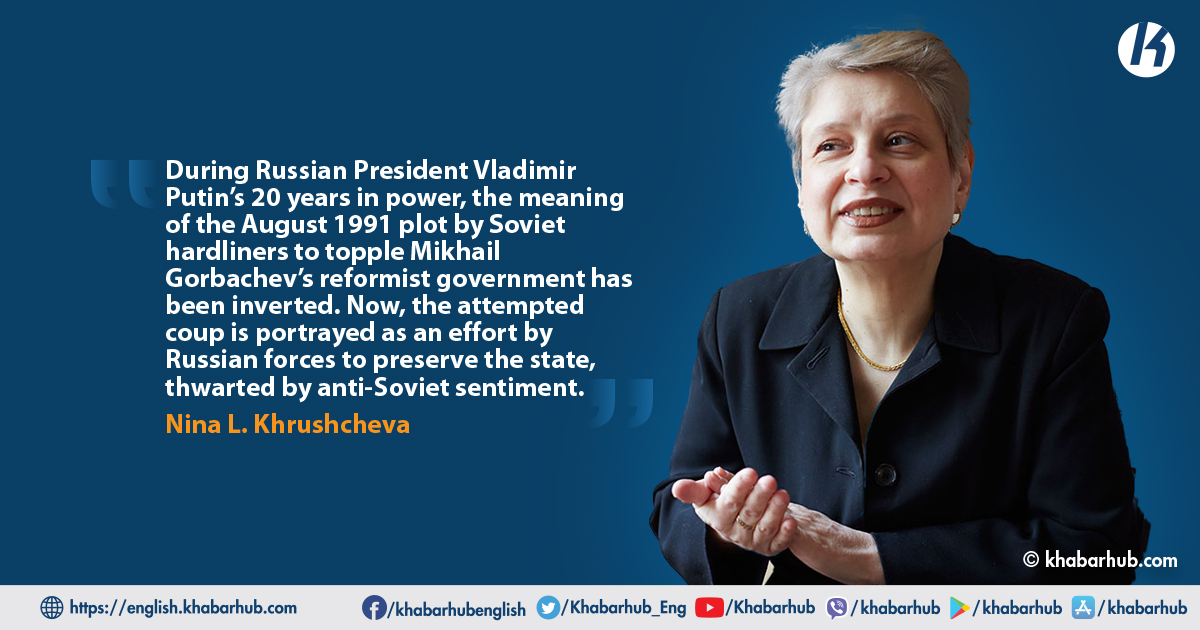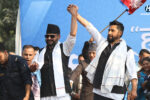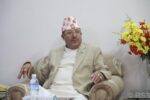Thirty years ago this month, a group of communist hardliners seized control of Moscow and placed Soviet leader Mikhail Gorbachev under house arrest at his holiday home in Crimea.
They opposed Gorbachev’s economic and political reforms – perestroika and glasnost – and sought to topple his government. Within three days, however, the coup imploded. By the end of that year, so had the Soviet Union.
During Russian President Vladimir Putin’s 20 years in power, the meaning of that act of subversion has been inverted. Now, the attempted coup is portrayed as an effort by Russian forces to preserve the state, thwarted by anti-Soviet sentiment.
According to a recent poll, only 50% of Russians remember those uneasy days, when Moscow was taken over by troops in tanks, and Swan Lake played on a loop on people’s televisions. And with the Kremlin doing nothing to jog their memories, just 7% now think it was “a victory of democracy.”
To be sure, so-called Flag Day – the anniversary of the day the coup was formally defeated and the Russian Federation’s red, white, and blue flag replaced the Soviet red – is commemorated every year.
But the celebrations are led by liberal parties, human-rights activists, and the handful of remaining oppositionists – those seeking to commemorate the fight for a free Russia. Putin has never participated.
Today, Russians enjoy relative prosperity and comfort. Many have never had it so good. So, why do so many remain convinced that a strongman is needed to lead them?
In fact, it can be said that the coup’s defeat has failed as badly as the coup itself. After all, today’s Russia is anything but free. Those who write or post something that may be considered anti-Putin, anti-government, or anti-church face the risk of arrest.
If you have anything to say to Putin other than, “Thank you for our happy existence,” you are likely to be labeled a fifth columnist, a foreign agent, or a dangerous extremist. Civil society hardly has space to breathe. The fiercely independent Dozhd TV, for example, was dubbed a “foreign agent,” though it never took a penny from abroad.
Of course, Putin is not Stalin: people are not being prosecuted en masse today, as they were in 1937. But more opposition voices were tolerated under Gorbachev than are now. Just ask Alexei Navalny, the anti-corruption lawyer and prominent Putin critic who now languishes in prison on invented charges.
You could also ask anyone who worked for his Anti-Corruption Foundation, which was forced to disband after being labeled an “extremist group,” or anyone who even donated money to the organization, as they may well have been visited by the police.
Yet most Russians have done precious little to resist, which perhaps should not come as a shock. But the tendency to prize stability, and even to sacrifice some freedom for it, was long understood as a response to the uncertainty and hardship of the Soviet and post-Soviet era.
Today, Russians enjoy relative prosperity and comfort. Many have never had it so good. So, why do so many remain convinced that a strongman is needed to lead them?
True, Russia is still not the superpower it once was. But its people are not particularly vulnerable to outside threats. And Putin’s efforts to “restore” Russia’s great-power status – including his annexation of Crimea and meddling in other countries’ elections – do not bolster ordinary Russians’ security or prosperity. In fact, they do just the opposite.
The drug, much like Marxist-Leninist ideology, brings contentment and obedience, while forcing a kind of cognitive dissonance that eventually causes people to develop dual personalities.
Yet Russians continue to capitulate to Putinism. When Navalny was arrested last year, I posted a “Free Navalny” sign in my mother’s Moscow apartment window.
Soon enough, her neighbors – middle-aged members of the intelligentsia – asked me to take it down. “We don’t want extra attention here,” they said.
As a compromise, I replaced the sign with a milder, more euphemistic version: “Free Un-Putin.” They came back and politely threatened to call the police, even as they assured me that they were on my side.
If we are on the same side, I responded, the whole building should post signs showing support for Navalny. After all, I pointed out, they can’t arrest us all. My neighbors declined. When I tried to gather support by ringing people’s doorbells, I was met with further threats to call the police.
Czesław Miłosz, a Nobel laureate in literature, considered this phenomenon in his 1953 essay The Captive Mind. The book begins with a discussion of Stanisław Ignacy Witkiewicz’s 1930 novel Insatiability, in which so-called Murti-Bing pills were given to the newly conquered Polish people as a “cure” for independent thought.
The drug, much like Marxist-Leninist ideology, brings contentment and obedience, while forcing a kind of cognitive dissonance that eventually causes people to develop dual personalities.
They are not so different from my mother’s Moscow neighbors who proclaim their agreement with Navalny even as they threaten to call the police on anyone who publicly supports him.
Thirty years ago, Gorbachev freed Russians from the prison of communism. Navalny has bravely tried to light the way out of Putinism, but so far, too many have kept their eyes tightly shut.
Miłosz notes that those living under totalitarian rule viewed Western democracies as too free, and believed that this, together with the application of the rule of law to state actors, made these countries unstable and unruly. Turn on Russian television today, and you will hear precisely the same message.
Ultimately, Miłosz points out, people do not submit to repressive rule only out of fear. They are also motivated by an “internal longing for harmony and happiness,” and authoritarians are adept at taking advantage of it. Putin certainly is. The problem is that these leaders do not actually deliver the better life they promise.
If Russia is ever to escape its Putin predicament, Russians will need to refuse their doses of Murti-Bing, over and over again.
We cannot wait for someone like Gorbachev or Navalny to come along and shake Russians awake for a moment, only to slip back into dormancy weeks or months later. We must work toward freedom every day.
Thirty years ago, Gorbachev freed Russians from the prison of communism. Navalny has bravely tried to light the way out of Putinism, but so far, too many have kept their eyes tightly shut.
The lesson of this misremembered anniversary is clear: a free society cannot be made by people who are content to allow their minds to be held captive.
(Nina L. Khrushcheva is Professor of International Affairs at The New School).
Copyright: Project Syndicate









Comment